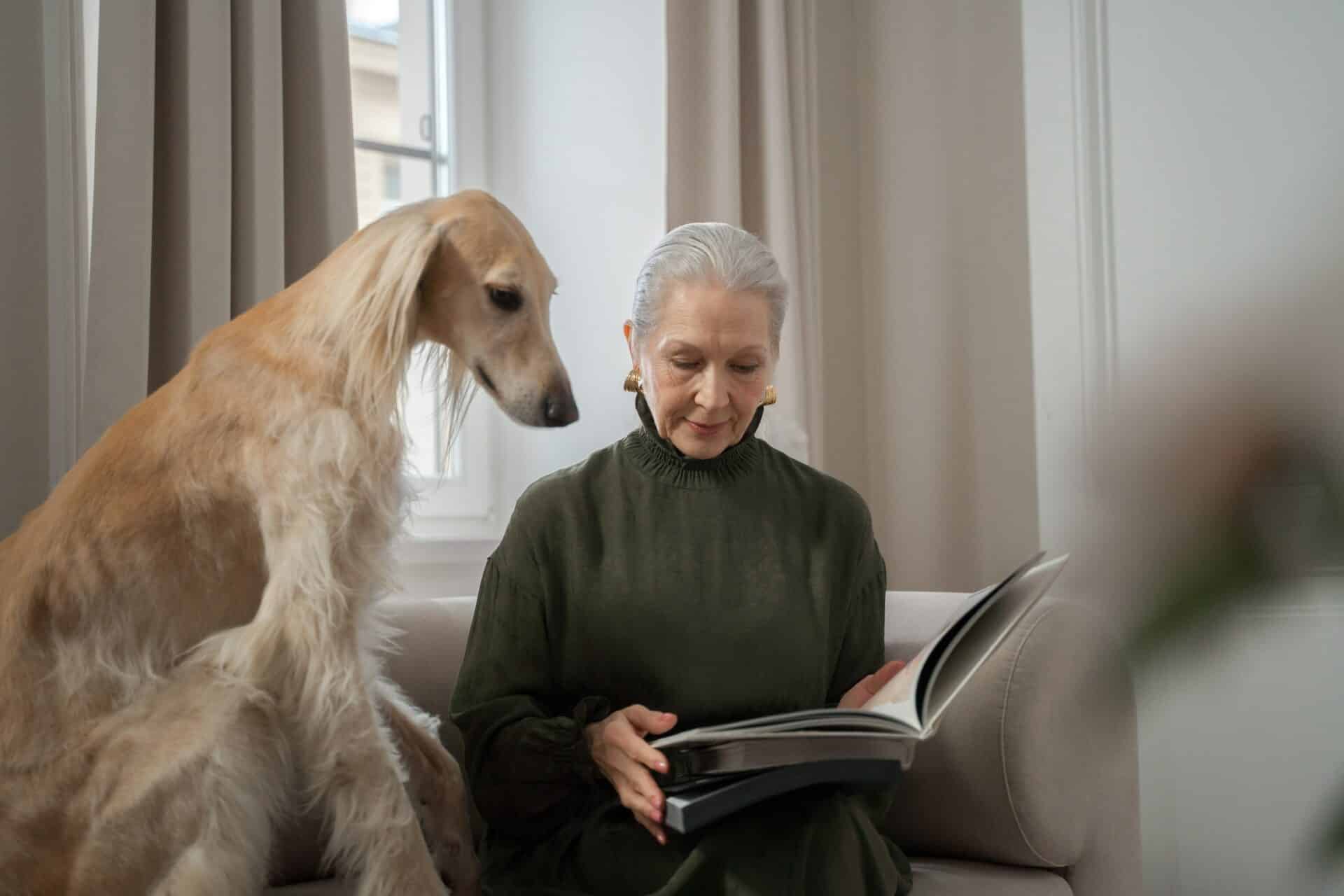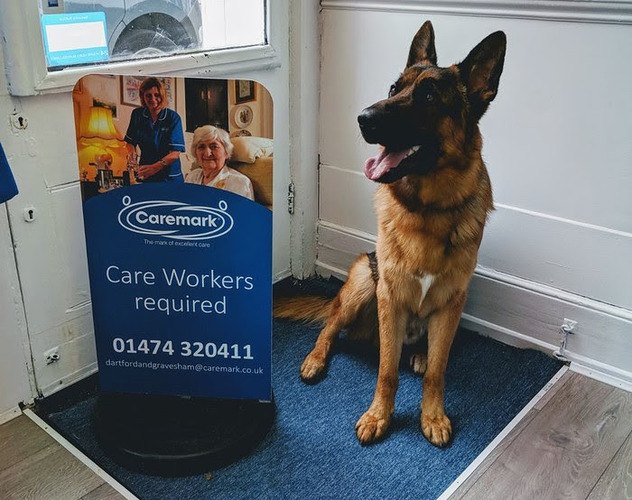The 8 Benefits of Pets for the Elderly

We all know that pets can positively benefit our well-being, happiness and emotional, physical and mental health. In other words, pets are good for the mind, body and soul! You might not already know this, but those over the age of 65 (who own a pet) will statistically make 30% less visits to the doctors, than those without pets.
Terminally ill and elderly people face daily problems, anxieties and sometimes injustices; therefore having the ability to boost their well-being is invaluable. So, can pets benefit the elderly people too?
Here we look at the 8 benefits of pets for the elderly.
1. Improves your mood
After stroking our pets, the anxiety relief hormone, formally known as ‘oxytocin’ is released. This allows us to alleviate stress and better our moods naturally. After all, we’ve all seen just how excited our furry friends get when they see us. Stroking or cuddling a dog for longer than 15 minutes a day is proven to improve our mood and happiness.
Pets can improve our quality of life and help us all feel a little less lonely at times. They sense our pain and know when we’re not feeling ourselves by supplying us with copious amounts of love and affection.
2. Great for exercise
More energetic pets will prove great for the elderly as it pushes and motivates them to go on regular walks, which is great for the mind, body and soul. Walking your pet can be a fun routine of the day and is also a great way of getting fresh air.
3. Better cardiovascular health
Walking our furry friends every day gets our heart pumping and blood flowing, which is great for our cardiovascular health. Other cardiovascular benefits include lower cholesterol, blood pressure and a lower risk of heart attacks.
Pet owners that have previously suffered heart attacks tend to have a longer life than non-pet owners who have suffered heart attacks.
4. Improves your social life
Daily (or regular) walks with your pet doesn’t just improve your health, it also gives you a chance to go out, get some fresh air and meet new people. For an elderly person, making new friends can sometimes make a world of difference, as they may live alone.
5. Promotes a routine and independence
Owning a pet can create a routine for any owner, although this might prove even more beneficial for the elderly. The elderly highly benefit from a regular routine, whilst pets love it too. A pet’s routine will include being fed, walks, cuddles and perhaps a regular treat, or two.
Having a routine set in stone will allow an elderly person to have more motivation each day, whilst creating a great level of independence too, which is great for their mental health.
6. Great for dementia patients
There are around 850,000 people diagnosed with dementia in the UK alone. As shocking as this statistic is, it’s no surprise, considering that dementia begins to develop in someone new around the world every three seconds. Pets can be great for dementia patients, too. It has been scientifically proven that behavioural problems (which unfortunately come alongside dementia) are significantly reduced in those that own pets.
Improved level of nutrition is another key factor in dementia patients with pets. A study undertaken by BrightFocus Foundation proved that using ‘therapy pets’ for a six week duration resulted in one set of dementia patients having an increased level of nutritional intake, in comparison to another set of patients that didn’t have a pet.
7. Sense of protection, safety and security
We treat our four-legged friends like one of our own, just as they return the favour by acting as our bodyguard sometimes. Our pets will protect us with their lives to ensure we have the security to feel comfortable living in our own homes.
8. Companionship
We don’t call them man’s best friend for no reason. For those who live alone, pets can become the ultimate companion. Your best friend, protector and someone that will never leave your side. Day-to-day companionship with your pet can reduce the feeling of loneliness.
If you think you may benefit from a fluffy friend, you will need to consider which pet and breed is best. Do your research and find out which type of pet is best for your lifestyle and needs. If you’re looking at getting a puppy or kitten, think about their house-training needs too.
Other things to consider include the size of the pet in relation to your home, the amount of exercise they need, how much attention the pet would need, or even if you would prefer to rescue a dog to give it a new, loving home. A huge benefit of rescue dogs is that they’re (usually) house-trained and can be very loving too.
Introducing you to our very important team member

We’re pleased to introduce you to our German Shepherd, Reece. Only 3 years old, he is (very) energetic, loving and always makes our guests feel happy when they visit our offices!
Keep up to date with Reece by following him on Instagram –@reecethegsd
If you already have a pet and need extra assistance, we can help look after your furry friends during our visits. Whatever your requirements, you can be assured of a quality service, delivered by caring, well trained, care workers who are there to support you in your daily routine, enabling you to live life your way.
If you’d like to find out more about how Caremark can help, please contact us here.